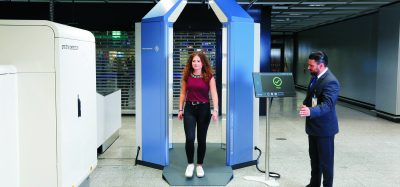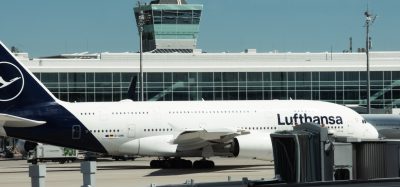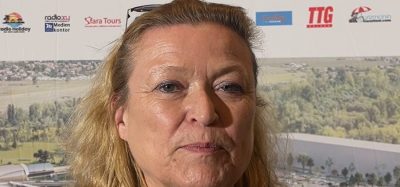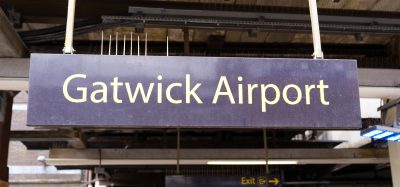Aviation industry comes together to fight illegal wildlife trade
- Like
- Digg
- Del
- Tumblr
- VKontakte
- Buffer
- Love This
- Odnoklassniki
- Meneame
- Blogger
- Amazon
- Yahoo Mail
- Gmail
- AOL
- Newsvine
- HackerNews
- Evernote
- MySpace
- Mail.ru
- Viadeo
- Line
- Comments
- Yummly
- SMS
- Viber
- Telegram
- Subscribe
- Skype
- Facebook Messenger
- Kakao
- LiveJournal
- Yammer
- Edgar
- Fintel
- Mix
- Instapaper
- Copy Link
Posted: 1 October 2021 | International Airport Review | 1 comment
Airports and airlines across the world have announced that they are joining the battle against wildlife traffickers and smuggling attempts, spreading the global messages of ‘It Doesn’t Fly With Us!’
For World Rhino Day which took place on 22 September 2021, airports and airlines across the world came together to denounce the illegal wildlife trade and voice that they are on their guard against smuggling attempts.
Over the last decade, almost 10,000 rhinos have been poached in Africa to fuel international demand for their horns. World Rhino Day provides a significant opportunity to focus attention on the illegal wildlife trade, it’s threat to species survival, and what can be done about it. According to the United Nations Office on Drugs and Crime (UNODC), rhino species are just five of the 6,000 species impacted by the illegal wildlife trade.
As part of World Rhino Day, a video was launched which features aviation companies from South America, Africa, Asia and EU, as part of the Step Up to Stop Wildlife Trafficking campaign, run by the USAID Reducing Opportunities for Unlawful Transport of Endangered Species (ROUTES) Partnership and United For Wildlife, a charity created by The Royal Foundation of the Duke of Cambridge.
“Wildlife trafficking impacts air transport in every region of the world, and the aviation sector plays a key role in being part of the global solution,” said Crawford Allan, Leader of the ROUTES Partnership. “With this campaign, we celebrate aviation companies that are actively working to end illegal wildlife trade.”
Since the ROUTES Partnership began operations in 2015, it has been engaging with airports and airlines worldwide to offer training, data and resources to enable them to support law enforcement in disrupting the illegal wildlife trade. The worldwide nature of this work is highlighted in the video, as the company meets stakeholders in many different countries that are working hard behind the scenes to keep the illegal wildlife trade out of the skies.
By joining together to say ‘It Doesn’t Fly With Us’, these companies are making it known that they do not tolerate wildlife trafficking, and that it goes beyond just words, as companies describe some of the actions they are taking to build defenses against illegal wildlife trade. This includes training their staff to detect smuggling attempts and assessing which flight paths are most frequently used by wildlife criminals.
A significant step airports and airlines can take in this fight is signing the United for Wildlife Buckingham Palace Declaration. This agreement commits members of the transport sector to take defined steps to combat illegal wildlife trade. Brasilia International Airport (BSB) and El Dorado International Airport (BOG) are the most recent aviation signatories, signing in July and August 2021, respectively.
A large support network is available to companies that want to take action, as ROUTES has helped forge many connections and alliances within the industry. E.g., in August 2021, multisector stakeholders in Latin America and the Caribbean discussed how they could work together to secure the region against wildlife trafficking. Airports Council International (ACI) and the International Air Transport Association (IATA) – two key partners of ROUTES – are committed to supporting their members in these efforts. The United for Wildlife Transport Taskforce is also collaborating with regional stakeholders, particularly in countries most prevalent in illegal wildlife trade.
Juliana Scavuzzi, Senior Director, Sustainability, Environmental Protection, and Legal Affairs at ACI World commented: “We celebrate airports’ wildlife trafficking prevention efforts. This crime can affect the sustainability of the aviation sector and the communities it serves. Multisector collaboration such as this can support the UN Sustainable Development Goals while protecting biodiversity, preserving economic livelihoods, maintaining the rule of law, and helping to avert the emergence and propagation of zoonotic diseases.”
“ROUTES has provided the tools, training, expertise and motivation for aviation sector companies as part of the campaign, and the response has transformed the industry. We call on air transport companies to use this platform to step up to stop wildlife trafficking,” further added Allan.
The Step Up to Stop Wildlife Trafficking video beams a message of hope – if everyone plays their part to prevent wildlife trafficking, species such as rhinos, and many others, have a better chance of remaining in the wild for future generations.
Related topics
Airside operations, Safety, Security, Social responsibility, Sustainability, Wildlife hazards, Workforce
Related organisations
Airport Council International (ACI), International Air Transport Association (IATA), Routes



















Outstanding progress in securing the global aviation ecosystem from the consequences of ignoring increasing wildlife trafficking through its airports and airlines that supports money laundering, terrorism funding, and criminal depletion of nature’s wildlife wonders. Well done, ROUTES & partners!